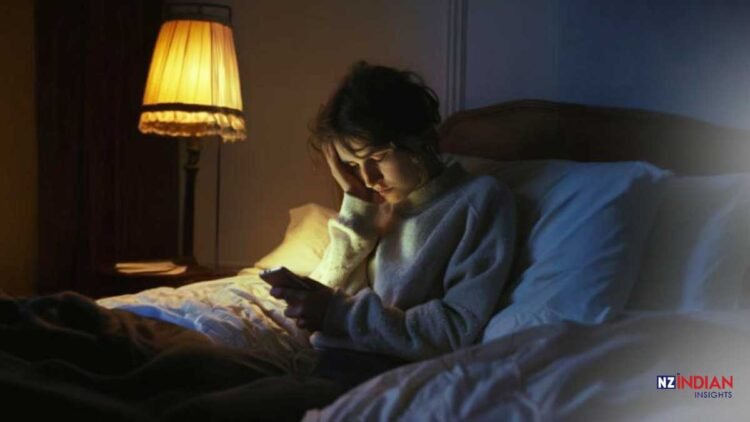In today’s digital age, most of us can’t imagine going to bed without scrolling through our mobile phones. Whether it’s social media, late-night chats, or streaming videos, using your phone at night feels harmless — but the truth is, it has a real impact on your body and mind.
Let’s explore how nighttime mobile use affects people and what you can do to create healthier bedtime habits.
How Nighttime Mobile Use Affects People
1. Sleep Disruption
The blue light emitted from mobile screens suppresses melatonin, the hormone responsible for sleep. This delays your body’s natural sleep cycle, making it harder to fall asleep and reducing sleep quality.
2. Eye Strain & Headaches
Staring at a bright screen in the dark causes digital eye strain. Many people experience headaches, blurred vision, or dry eyes due to prolonged nighttime screen time.
3. Mental Health Issues
Constant scrolling before bed overstimulates your brain. Studies link late-night phone use to higher stress, anxiety, and even mild depression, as your brain doesn’t get time to relax.
4. Reduced Productivity
Poor sleep quality affects focus, memory, and productivity the next day. Over time, this can hurt work, studies, and even personal relationships.
How to Solve the Problem
1. Set a Digital Curfew
Try to avoid phone use at least 30–60 minutes before bed. Replace it with reading a book, meditation, or calming music.
2. Use Blue Light Filters
Most smartphones now have night mode or blue light filters. Switch this on in the evening to reduce strain.
3. Keep Phones Away From Bed
Place your mobile away from your pillow. Use an alarm clock instead of relying on your phone to wake up.
4. Practice Relaxation Habits
Stretching, journaling, or breathing exercises can help relax your mind, making it easier to sleep.
5. Limit Notifications at Night
Turn on Do Not Disturb mode to avoid unnecessary pings and late-night distractions.
FAQs:
Why is using a mobile phone at night harmful?
Mobile phones emit blue light, which reduces melatonin levels, delays sleep, and causes eye strain and mental fatigue.
How can I reduce the impact of nighttime phone use?
Set a digital curfew, use night mode, limit notifications, and keep your phone away from your bed.
Can mobile use before bed cause insomnia?
Yes. Prolonged screen time at night interferes with sleep hormones and may lead to difficulty falling asleep or staying asleep.
Is it okay to use my phone for relaxation at night?
It’s better to avoid it. Instead, try offline relaxing habits like meditation, reading, or listening to calming audio without screens.




















